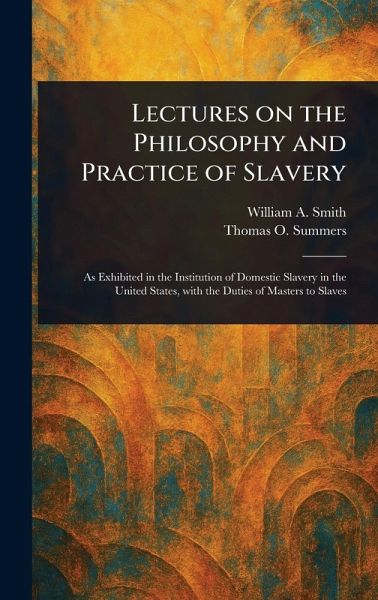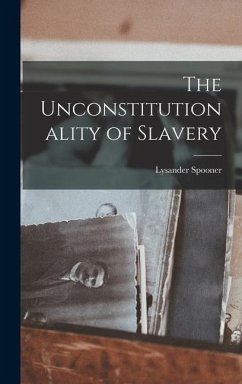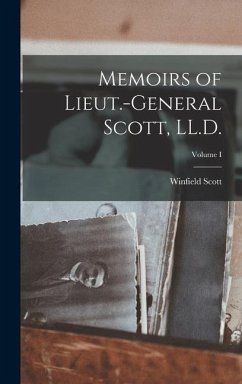
Lectures on the Philosophy and Practice of Slavery
Versandkostenfrei!
Versandfertig in über 4 Wochen
29,99 €
inkl. MwSt.
Weitere Ausgaben:

PAYBACK Punkte
15 °P sammeln!
William A. Smith's "Lectures on the Philosophy and Practice of Slavery" offers a stark and unflinching examination of domestic slavery in the United States. Originally delivered as a series of lectures, this meticulously prepared republication delves into the philosophical justifications and practical realities of slavery as it existed in the pre-Civil War era. Smith directly addresses the ethics and morality of slavery, exploring the duties of masters to slaves within the context of the institution. This historical text provides a crucial, albeit controversial, perspective on the social issue...
William A. Smith's "Lectures on the Philosophy and Practice of Slavery" offers a stark and unflinching examination of domestic slavery in the United States. Originally delivered as a series of lectures, this meticulously prepared republication delves into the philosophical justifications and practical realities of slavery as it existed in the pre-Civil War era. Smith directly addresses the ethics and morality of slavery, exploring the duties of masters to slaves within the context of the institution. This historical text provides a crucial, albeit controversial, perspective on the social issues that defined a nation grappling with its own identity. A vital resource for understanding the complex history of the United States and the philosophical arguments surrounding slavery, this work remains relevant for anyone interested in the history of slavery and the social and ethical debates it ignited. This work has been selected by scholars as being culturally important, and is part of the knowledge base of civilization as we know it. This work is in the public domain in the United States of America, and possibly other nations. Within the United States, you may freely copy and distribute this work, as no entity (individual or corporate) has a copyright on the body of the work. Scholars believe, and we concur, that this work is important enough to be preserved, reproduced, and made generally available to the public. We appreciate your support of the preservation process, and thank you for being an important part of keeping this knowledge alive and relevant.














